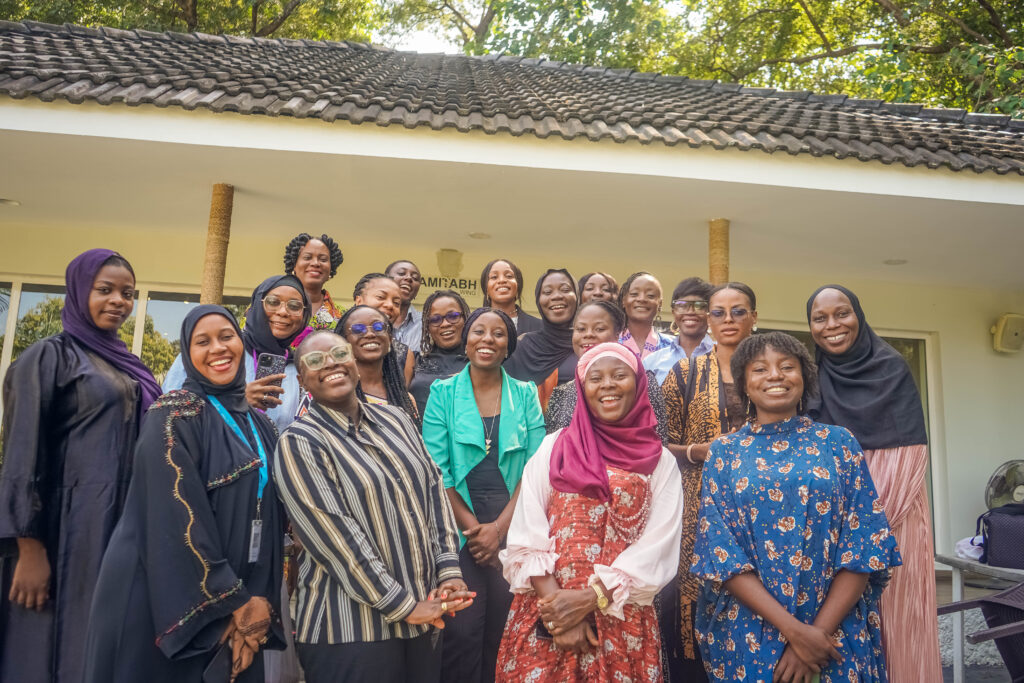A full report of the roundtable discussion is available here.
In light of the gender gap in FOI engagement, on October 30th, 2024, the HumAngle Foundation hosted a roundtable discussion focused on Nigeria’s Freedom of Information (FOI) Act of 2011, bringing together female advocates and civil society leaders, to explore gaps in female engagement with the Act and promote a culture of demanding accountability among women.
Director of the Foundation, Angela Umoru-David set the tone for the event and called the women present to a shared sense of purpose while Hauwa Shaffii Nuhu, Managing Editor of HumAngle Media emphasised the importance of the citizen’s right to access public records. She broke down key aspects of the FOI Law and noted that HumAngle offers a platform to help submit requests where individuals may not be able to do so on their own, although the use of this solution remains low.
“There are organizations that can help facilitate FOI requests if you’re concerned about your safety or prefer not to submit the request yourself. For example, the HumAngle Foundation sends letters on your behalf if needed. However, awareness of these services remains limited, and that’s something we all need to work on. FOI requests aren’t just limited to financial records; they can cover a range of information, such as public policies, registration records, and even marriage certificates.”
This point set the stage for an insightful dialogue on how to enhance public understanding and utilization of the FOI Act.
A major highlight was sharing the HumAngle FOI platform. It is designed to simplify the process of submitting FOI requests. Shade Mary-Ann Olaoye, the HumAngle Audience Engagement Lead, provided a walkthrough of the platform’s features, showcasing its user-friendly interface and tracking system. The platform intend to address accessibility challenges, particularly for individuals with disabilities and non-English speakers, in the near future.
The discussions also illuminated some of the triumphs in engaging with the law. Blessing Oladunjoye, publisher of BO News shared her firsthand experience, where she was able to seek redress in court and receive a favourable verdict against YABATECH when they denied her request. Lucy James Abagi, CEO of PPDC noted the impact of the ranking system her organisation has made, in collaboration with other civil society organisations but highlighted certain challenges they had faced.
“Beyond simply requesting this information which, of course, is essential and should be ongoing, we shouldn’t even have to request it in the first place. First, how do we support MDAs that actually publicize their information? Because, even now, when you go to platforms like NOCOPO, it’s down. Despite having resources, we’re unable to track data because they’re supposed to provide procurement details in the open contracting database system, but it hasn’t been active for the past two years. When you go to the Single Treasury Account, it’s the same issue. There’s no data; in fact, the server just says ‘still loading,’ and it will keep loading until you get tired.”
Other challenges identified included the poor understanding civil servants possess of the law, staff changes and the ineffective justice system.
The general discussion, moderated by Angela Umoru-David, explored the opportunities surrounding the FOI Act. “It’s not just about us here in these professional, corporate spaces. It’s about the regular woman, our aunties, our mothers, our grandmothers. How can we get them to be more involved in conversations like this?” She steered discussions on gender-responsive budgeting, policies on women inclusion, mental health initiatives in education and the use of grassroot networks to strengthen engagement with the Act and women-led advocacy.
The roundtable concluded with a renewed commitment among participants to leverage the FOI Act as a vital tool for promoting transparency and fostering a culture of accountability in Nigeria.
To download the full report, click here.



